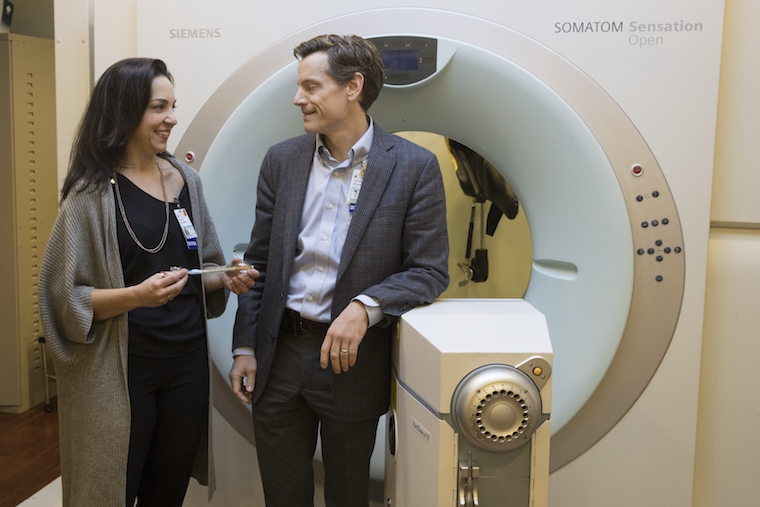Our Shayna and Tim Showalter have received more than $1.8 million from the National Institutes of Health for their effort to improve radiation therapy and breast surgery for women with early-stage breast cancer.
The Showalters, who are married, have developed a technique they call Precision Breast Intraoperative Radiation Therapy (IORT). Precision Breast IORT seeks to improve on conventional breast IORT by making it more targeted, more powerful, more personalized and, hopefully, more effective.
The approach aims to overcome technical limitations of traditional IORT by adding imaging, so that doctors can direct the radiation exactly where it is needed while sparing healthy tissue. It effectively doubles the radiation dose patients can receive at the time of breast-conserving surgery.
The researchers hope the approach will produce improved outcomes in terms of quality of life, the effect on the immune system and the cosmetic appearance of the patient’s breast. So far, so good: The researchers have established the safety and feasibility of the approach in a phase I clinical trial.
They are now conducting a phase II trial at UVA and Thomas Jefferson University Hospital in Philadelphia to evaluate the overall effectiveness of Precision Breast IORT as well as the effects on the immune system for both IORT and traditional whole-breast irradiation.
“Our research will address fundamental questions about the impact of radiation therapy on the immune system for cancer patients,” said Tim Showalter, a radiation oncologist. “We will also provide evidence needed to understand how Precision Breast IORT compares to other radiation options, an important foundation for disseminating our findings.”
“The clinical trial of Precision Breast-IORT has been very well received in the region, with rapid patient enrollment, and the entire team is to thank for that,” said Shayna Showalter, a breast cancer surgeon. “It is so rewarding to be able to advance the field through such a patient-centered research program.”
Did I mention they’re married? And have kids? I don’t know how they find enough hours in the day, but I’m glad they do.
